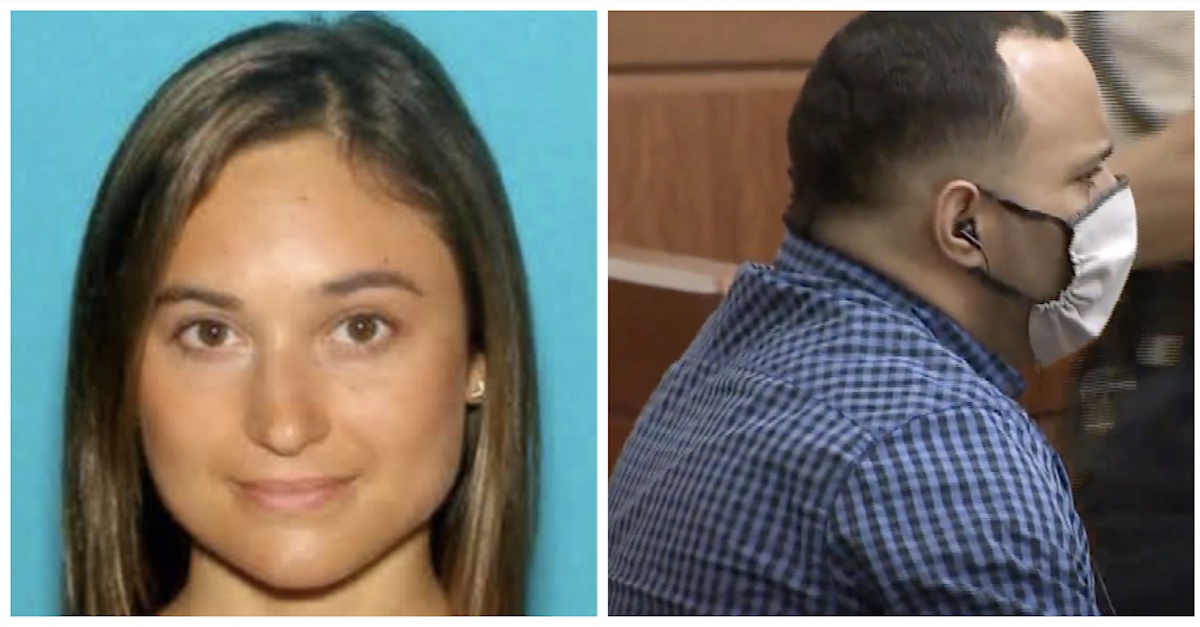
The man accused of murdering a Massachusetts woman in 2016 while she was jogging has lost his bid to toss DNA evidence allegedly linking him to the crime.
Angelo Colon-Ortiz is accused of killing Vanessa Marcotte, 27, in August of 2016. Marcotte, a Google employee living in New York City, was visiting her mother in Princeton, Mass. at the time. She had gone for a jog on the last day of her visit, and was found dead hours later.
Investigators found her body partially-clothed and burnt. They determined that she had been sexually assaulted. They also found genetic material under Marcotte’s fingernails, which court documents said “indicated the presence of male DNA with a likely Hispanic ancestry, possibly from Puerto Rico.”
Colon-Ortiz, who was born and raised in Puerto Rico and speaks Spanish, provided a DNA sample to police in March 2017, when they visited his home. His was the 325th DNA sample collected by police in the case. Colon-Ortiz was indicted in June 2017.
During that March visit, Thiago Miranda, a Massachusetts state trooper who understood and spoke conversational Spanish but was not a trained translator, worked with Colon-Ortiz’s girlfriend Raquel Lozada-Vega to convey to him what was said on the consent form that would allow the troopers to take a DNA swab from Colon-Ortiz’s cheek.
In seeking to suppress the DNA evidence, Colon-Ortiz had argued that the language barrier meant that the consent form he signed wasn’t adequately translated, and he didn’t understand that the choice to give a sample was voluntary.
On Tuesday, Worcester Superior Court Judge Janet Kenton-Walker disagreed. She found that although there were “serious concerns” with much of the form, the first sentence of the document clearly conveyed that the decision to provide DNA to the police was voluntary.
Kenton-Walker’s ruling comes seven months after an evidentiary hearing on the matter. At that hearing, Kenton-Walker heard from three translation experts—two for the prosecution and one for the defense.
Kenton-Walker said that she found testimony from all three to be credible.
“[A]ll the experts agreed that the first sentence of the consent form was clear and coherent,” Kenton-Walker wrote. “The sentence conveys that the individual named will voluntarily provide a sample of buccal DNA.”
Kenton-Walker said that although the sentences following the first one “may present some confusion, the court finds that they do not materially alter or defeat the clarity of the first sentence or the document’s meaning or purpose.”
Despite what Kenton-Walker called a “litany of errors” in the consent form, Colon-Ortiz was able to understand that he was providing the sample voluntarily.
“The consent form at issue appears to be the product of carelessness,” Kenton-Walker wrote. “There is no excuse for the litany of errors the experts highlighted in the document. Although the first sentence was clear and coherent, the remaining sentences were not, and they provided valuable information that an individual should be able to consider, and properly factor into a decision with an equal level of understanding.”
However, Kenton-Walker wrote, “there is no evidence in this record that Colon-Ortiz did not understand the form. And despite the above concerns, the information Colon-Ortiz needed to know was that police were asking him to consent to providing a sample of DNA for the investigation of the death of Ms. Marcotte.”
Kenton-Walker also noted the interactions between the state troopers, Colon-Ortiz, and Lozada-Vega during that March visit.
Miranda, the trooper who spoke Spanish, read each sentence on the form out loud to Colon-Ortiz, and asked after each sentence whether Colon-Ortiz understood what was just read. Each time, Colon-Ortiz either answered in the affirmative or nodded his head to indicate “yes.” Colon-Ortiz did not ask Miranda to explain the meaning of the consent form, but after reading the form again, Colon-Ortiz asked if the form was voluntary. Miranda, after translating and conferring with the other state troopers, told Colon-Ortiz that it was “completely voluntary.”
In a footnote, Kenton-Walker seemed to give the law enforcement officers credit for making what she thought was a good effort.
“The court does not know the origin of the consent form,” she wrote. “In no way does this court mean to impugn the officers involved in this case, as they likely relied on and used the form in good faith without knowledge of its shortcomings.”
Eduardo A. Masferrer, one of Colon-Ortiz’s lawyers, told the local Telegram & Gazette newspaper that he is “disappointed” with the ruling and will consider an appeal.
Read Kenton-Walker’s decision below, via the Telegram & Gazette.
[Images via Massachusetts State Police, WBZ-TV screengrab]